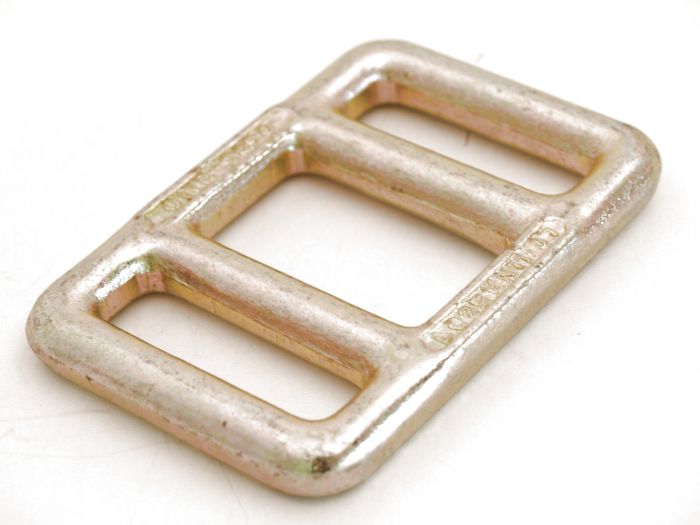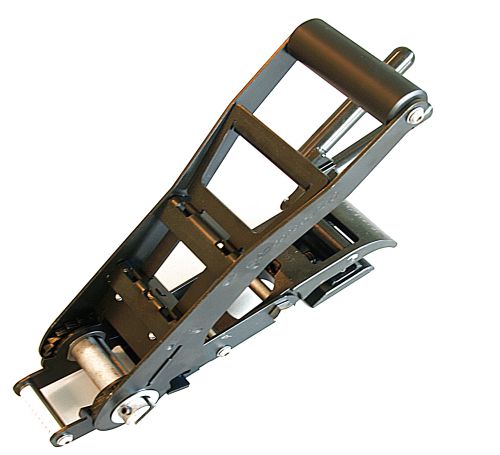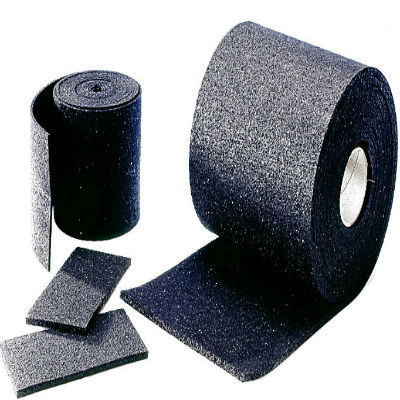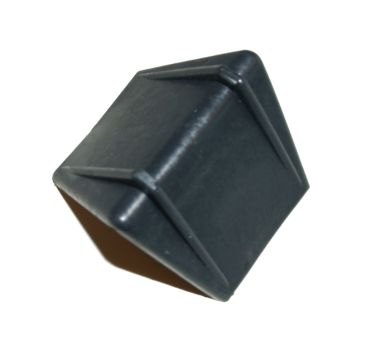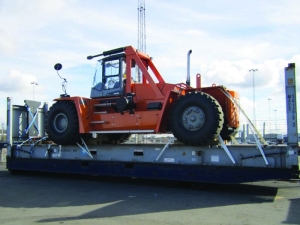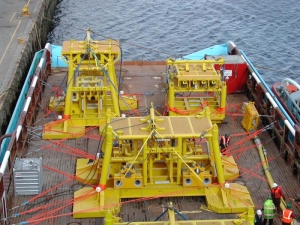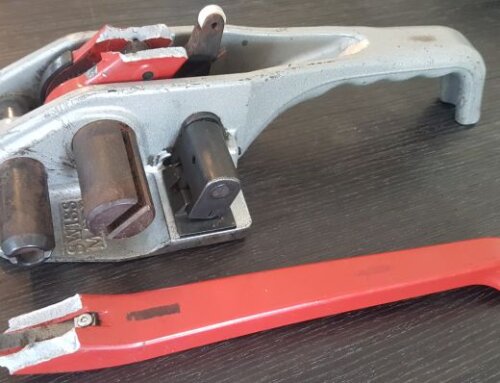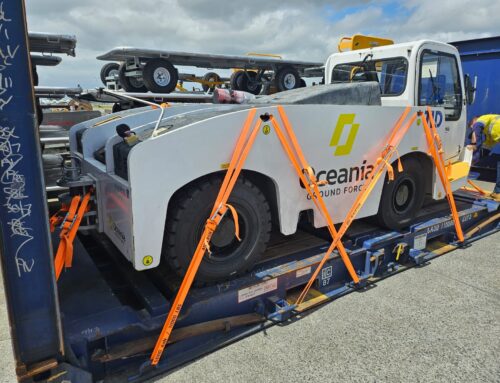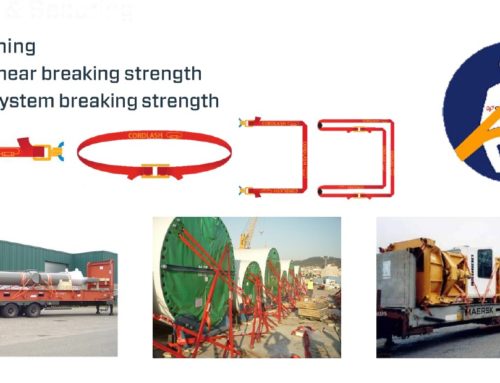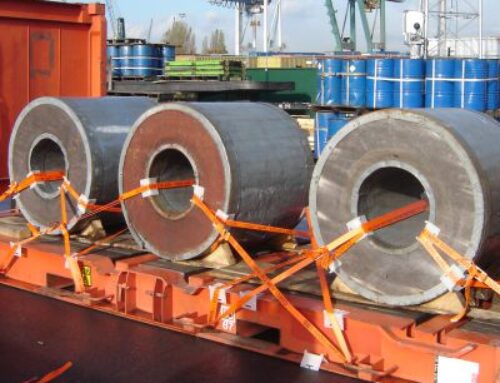How to secure a 36t unit on a flat rack | Case Study
 Understanding the challenge
Understanding the challenge
One of our customers was faced with the challenge to ensure the safe and damage free transportation of a large and heavy (36t) hammer from their site west of Brisbane to the Port of Brisbane and further on to Singapore.
One such significant challenge was managing the combined weight of the unit and the flat rack.
The transportation of heavy loads on Australian roads brings with it significant safety concerns, which are of utmost importance to our customer. Having partnered with us on several complex projects in the past, the company has reached out once more to tap into our specialized knowledge in cargo securing solutions.
This time, the task involves securely lashing a 36t unit, hammer, in compliance with Australian and International Regulations for road and sea transport and to prevent cargo damage by eliminating movement of the unit while in transit.
The hammer’s weight prevented the unit from being secured to the flat rack on the ground. Apart from the cranes at the Port of Brisbane, there are no available rental cranes that can handle the combined weight of the flat rack and the unit. Consequently, the hammer had to be lifted onto the flat rack while it was on the float before the unit could be fastened securely.
LOAD DETAILS
CARGO TO SECURE | HAMMER
WEIGHT | 36TON
MODE OF TRANSPORT | TRUCK AND VESSEL
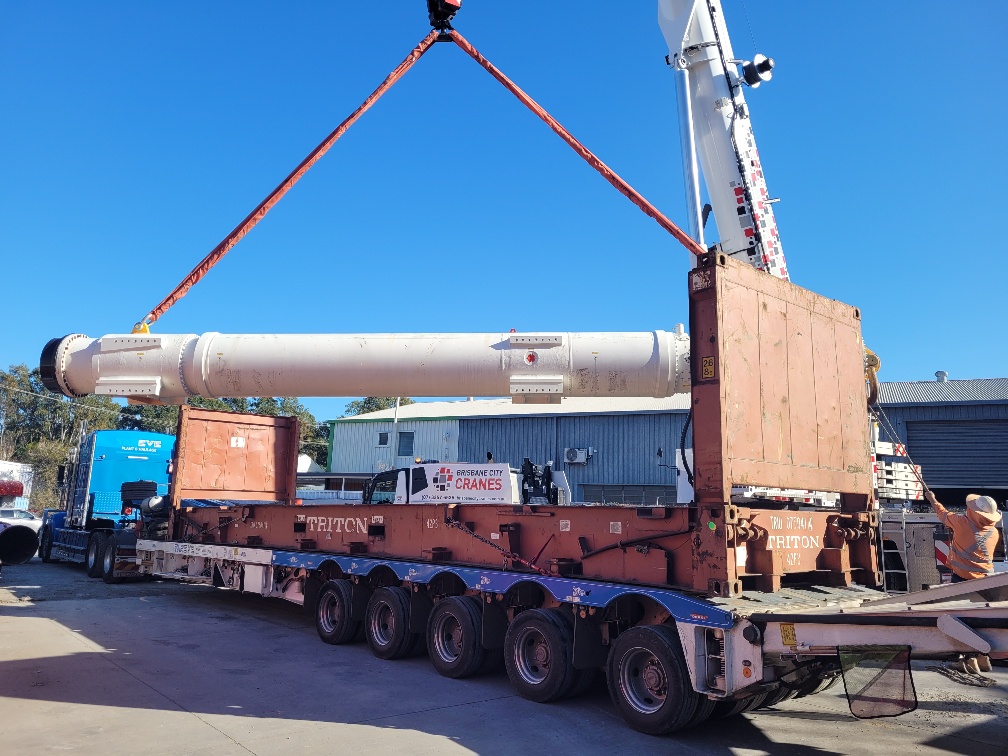
Tailored Cargo Securing Solution
Our team advocated for and showcased a 40mm 8.5t woven lashing system, fastened using 40mm ladder buckles. This system can be tensioned using different tools, either manual, battery-operated, or pneumatic. For this project, we utilized Cordstrap’s in-house designed and manufactured manual CRT-50 tensioner. This tool achieves a pre-tension of 1200daN, which is the highest pre-tension attainable with a manual tool currently available on the market. To further compliment the securing of the unit we advised edge protection and friction rubber.
 1.) 8.5t woven cargo lashing system
1.) 8.5t woven cargo lashing system
This system should be employed as a direct lashing method (belly lashings) rather than tie-down lashings. The advantage of direct lashings is that they permit calculations with a Safe Working Load (SWL) of 75% of the lashing system’s capacity (8.5t x 75% = 6.375daN per lashing). Using tie-downs instead of direct lashings limits the SWL to 500kg per strap. For a 36t unit, this would theoretically necessitate 72 straps or chains!
Note: Since the flat rack lashing points have a 5t rating, we base our calculations on a 5t system strength for each lashing strap.
2.) Edge Protection
3.) Friction / Anti Slip Rubber Matting
Total cost and material overview
Lashing straps:
- 10 direct lashings right | 5t per lashing = 50t
- 10 direct lashings left | 5t per lashing = 50t
- 2 direct lashings front| 5t per lashing = 10t
- 2 direct lashings back | 5t per lashing = 10t
- TOTAL LASHING CAPACITY = 120t
Other materials used
- 24 ladder buckles to close the lashing straps
- 2 pieces of friction rubber; 250mm x 750mm x 8mm with friction coefficient 0.8
- Cordstrap CRT-50 manual tensioner to tension the lashing straps
Manhours and material cost
- Total manhours to secure unit | 2 hours
- Total cost materials | <AUD$300
Watch the full video
Other important considerations…
Health and Safety Benefits
Cost-effective solution
Reputation
Talk with us
Reach out to our Cargo Restraint Systems’ team to schedule a free site visit. Our experts will assess your unique requirements and provide crucial advice on the best solutions. Benefit from practical guidance and experience our products in action with a complimentary demonstration. We offer training and ongoing support to guarantee smooth operations. Get in touch today to enhance and refine your cargo management process. Our number is 1300 478 727. We look forward to speaking with you!


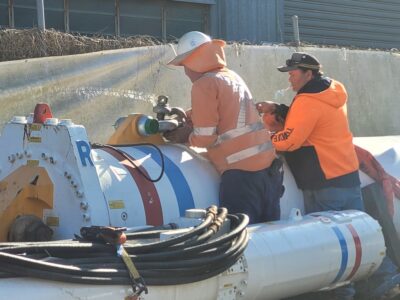 Understanding the challenge
Understanding the challenge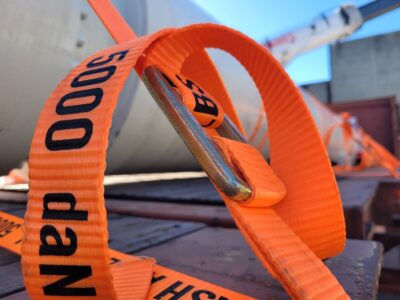 1.) 8.5t woven cargo lashing system
1.) 8.5t woven cargo lashing system
